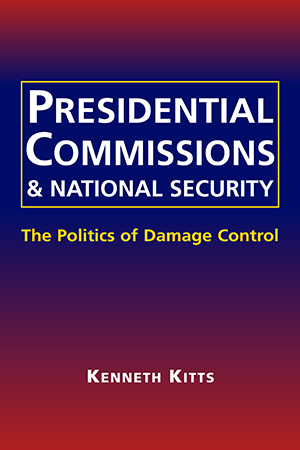Kenneth Kitts offers entry into the highly political, behind-closed-doors world of blue-ribbon investigative commissions convened in the aftermath of national security crises.
Ranging from Pearl Harbor to the September 11 terrorist attacks, Kitts takes the reader into the "backroom" to watch as presidents, their advisers, and commission members confront an armory of pressures. With rich detail and accounts of political intrigue, he reveals just how and when presidents reach for the blue-ribbon option to try to defuse crises, deflect criticism, and maintain control of national security policy and how presidential expectations are sometimes unmet, as commissions issue damning reports with unforeseen and explosive consequences.
Kenneth Kitts is president of the University of North Alabama, as well as professor in the university’s Department of Political Science.
"Brings together a fascinating set of national security commissions—and the political crisis that led to their creation.... Also presents a sound theoretical case for seeing these five commissions as instances of a common phenomenon, not so much as fact finding missions but as institutional responses to political crisis that presidents try to craft.... Kitts pushes the study of the presidency forward in this book.... Kitts provides an excellent analysis, systematically bringing theory and evidence together." Patrick J. Haney, White House Studies
"This book should be required reading for students of the American presidency, the US Congress, public administration, and public policy.... Essential."—Choice
"Demonstrates clearly, convincingly, and in fascinating detail that presidential commissions—from Pearl Harbor to 9/11—are highly political creatures. This book is essential reading for anyone interested in how presidents try to avoid or limit congressional influence in times of foreign policy crises."—Richard W. Waterman, University of Kentucky
"Very well written and documented.... A valuable reference for anyone interested in presidential commissions and the foreign policy problems that give rise to them."—Wayne P. Steger, DePaul University






